When a school teacher’s violent death is ruled a suicide, her parents set out on a quest for the truth. What really happened to Ellen Greenberg?
Episode Media

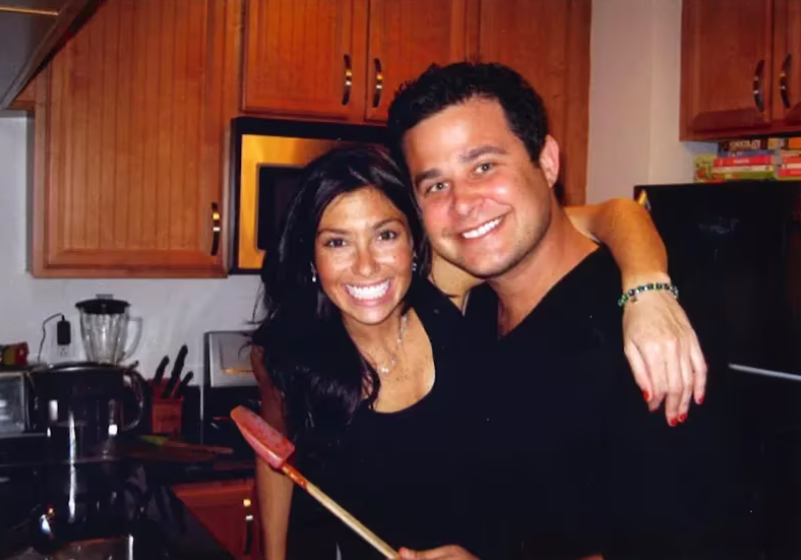

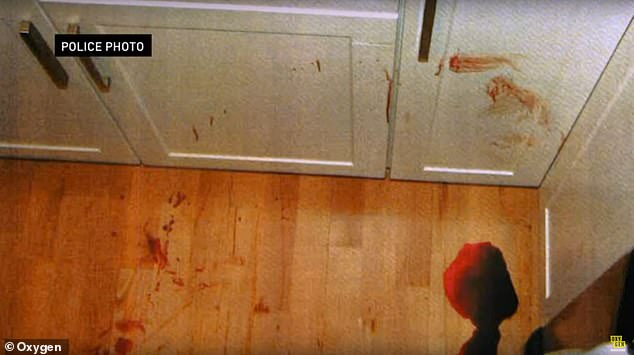
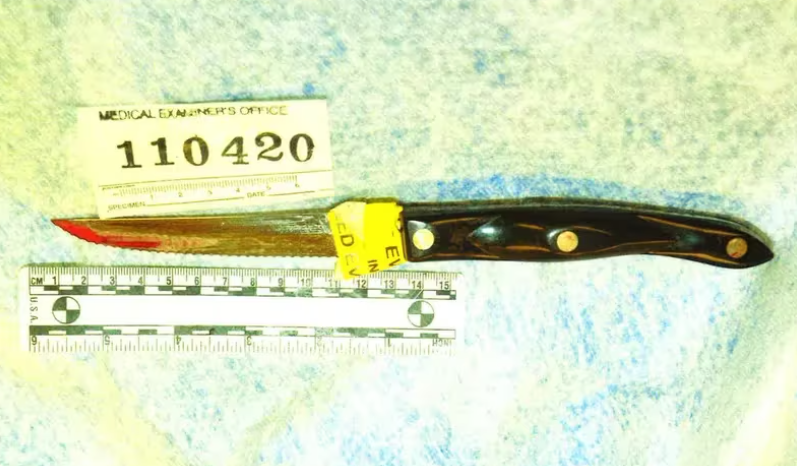
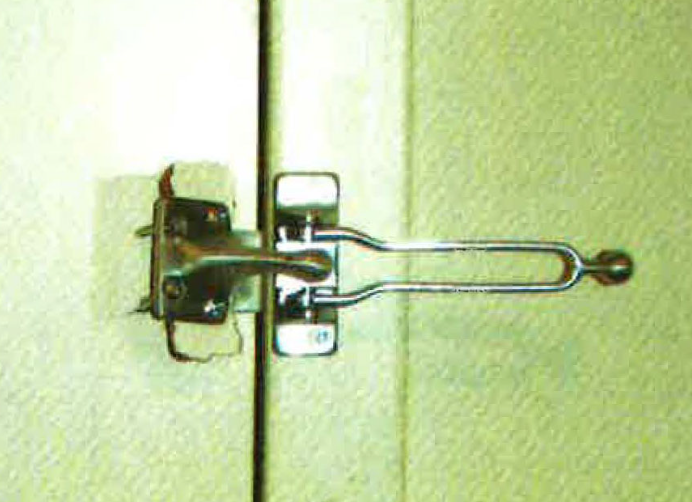
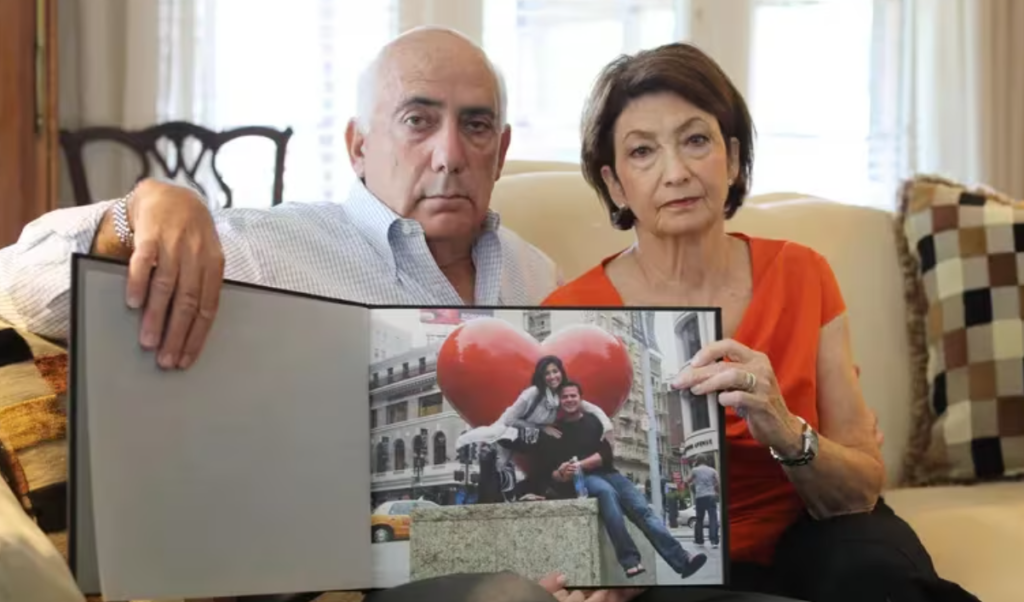
Episode Sources
- Justice for Ellen
- Petition · Justice for Ellen Rae Greenberg
- Ellen Greenberg Obituary (2011)
- Ellen Greenberg – Case Documents and Details – Gavin Fish
- Teacher Found Dead in Manayunk
- Police leaning toward suicide in teacher death
- Talented teacher at Juniata Park found stabbed to death in Manayunk
- Juniata Park school copes with teacher’s death
- A Philly teacher’s brutal stabbing has experts at odds: Was it a suicide or homicide?
- Suicide Or Murder? Philadelphia Teacher’s Baffling Death Still Leaves Her Family Searching For Answers
- Family of teacher who died from 20 stab wounds sues Philadelphia medical examiner to have suicide ruling changed
- Teacher’s Stabbing Death Was Ruled Suicide — But Parents Are Suing, Claiming Murder
- Family hopes new lawsuit ends search for answers in daughter’s mysterious death
- Authorities say the cause of a Philadelphia teacher Ellen Greenberg’s death was suicide, but her parents say it was murder
- Ellen Greenberg’s Death: Parents Believe It Was Murder, Not Suicide
- New information suggests young fiancée found stabbed 20 times did NOT search online for suicide
- Ellen Greenberg lawsuit: Parents challenge suicide ruling in Philadelphia stabbing death
- Murder or suicide? Parents’ 10-year search for answers in daughter’s death heads to trial
- Parents of Ellen Greenberg believe new evidence submitted to the Philadelphia Attorney General’s Office will prove their daughter’s 2011 death was murder, not suicide
- New evidence brought forward in controversial suicide case
- Ellen Greenberg case: New details from civil suit
- Parents Hope New Court Opinion Will Allow Death Case of Ellen Rae Greenberg to Reopen
- Philadelphia AG’s office returns Ellen Greenberg case back to DA’s office over “appearance of a conflict” of interest
- City of Philadelphia Office of the Medical Examiner v. Greenberg
- DA to review death of Pa. teacher who was stabbed 20 times in case ruled suicide: report
- Ellen Greenberg case referred to Chester County District Attorney’s Office
- Ellen Greenberg case: Chester County DA to take over investigation of teacher’s stabbing death, lawyer says
- Philadelphia suicide designation for woman with 20 stab wounds, bruises, ignores homicide evidence
- Family Fights For Justice For Teacher Found With 20 Stab Wounds Whose Death Was Ruled A Suicide
- Case of Philly teacher Ellen Greenberg, whose 2011 death by 20 stab wounds was ruled suicide, heard by court
- Pennsylvania court hears arguments in family’s bid to overrule medical examiner
- Why This One Particular Stab Wound Is Crucial In Ellen Greenberg Family’s Arguments
- Ellen Greenberg’s parents vow to keep up fight for justice 12 years after brutal stabbing ruled suicide
- Ellen Greenberg’s parents fighting to change suicide ruling
- Parents fight suicide ruling in case of woman stabbed from behind
- She died from 20 stab wounds, but it was ruled a suicide. Ellen Greenberg’s parents are fighting for justice
- Ellen Greenberg’s parents appeal suicide ruling in her brutal stabbing to Pa. Supreme Court
- Family of Ellen Greenberg not giving up after latest Pennsylvania appellate court ruling
Episode Transcript
Welcome back to Bite-Sized Crime. This week I’m bringing you another case that was recommended by a listener, so a big thank you to A’niyah for suggesting this story. Ellen Greenberg’s case is baffling, a locked-room mystery that has sent her family on a frustrating quest to find the truth. This episode discusses sensitive topics and includes graphic descriptions, so listener discretion is advised.
On the morning of January 26, 2011, 27-year-old Ellen Rae Greenberg headed to work as usual. She enjoyed her job as a first grade teacher at Juniata Park Academy, a diverse school in North Philadelphia, Pennsylvania. Ellen had been at the school since day one, hand-picked by the principal to be there when it had opened four years earlier. Ellen was dedicated to her students and her career, earning two master’s degrees all while teaching full-time.
But as anyone who has worked in education knows, teaching is stressful, and Ellen had been feeling overwhelmed lately. The school district had recently made some big changes, and the pressure was starting to make her question whether she wanted to continue teaching. School had only been back in session a few weeks after the winter break, and Ellen was already feeling stressed and anxious.
As she made the 15-minute drive to work on January 26th, Ellen called her mom, who lived a few hours away in Harrisburg. Sandra Greenberg said it was a pleasant conversation – Ellen seemed upbeat, although slightly worried about the weather. A big storm was blowing across New England, and she expected the city would be blanketed in snow by the end of the day. She also had to get her grades turned in that afternoon, and some of her students were struggling. But on the whole, Ellen sounded good, and they wrapped up the call just as she pulled up to the school.
A few hours later, Philadelphia schools closed early in anticipation of the coming blizzard, so after saying goodbye to her students, Ellen headed home. She stopped at a gas station to fill up her tank around 1:30 and was back at her apartment shortly after.
Ellen and her fiancé lived at the Venice Lofts on Venice Island just outside the city. Ellen and television producer Sam Goldberg had met three years earlier, and they had just gotten engaged that past summer. They had a date set for August 2011, and Ellen was neck-deep in wedding planning. She might have been looking forward to a free afternoon to work on those plans.
Around 4:45, Sam told Ellen he was going to work out in the complex’s gym. But when he returned 45 minutes later, he found the door to the apartment locked. He had his key, but the swing bar lock was activated from the inside, preventing him from getting the door open. He called out to Ellen through the door, but she didn’t respond. Confused, Sam tried calling Ellen’s cell phone, but again, there was no answer. He sent text message after frustrated text message, hoping she would hear her phone and open the door.
After about 20 minutes of unanswered texts, Sam decided to enlist some help. He took the elevator down to the main lobby and spoke to the security guard, 67-year-old Phil Hanton. Sam begged Phil for assistance, and Phil accompanied Sam back up to the apartment. But he told Sam that it was against policy for him to help open the door. Sam finally decided to just kick the door down – he would pay for any damages later.
As soon as Sam got into the apartment, he saw Ellen. She was in the kitchen, lying on her back, her head resting against the corner cabinets. She was covered in blood.
Sam immediately called 911 and told the dispatcher, “I just walked into my apartment. My fiancée is on the floor with blood everywhere.” The dispatcher told Sam that she would walk him through the steps of CPR. But when he knelt down, he saw the cause of all the blood. “She stabbed herself. She fell on a knife. I don’t know… There’s a knife sticking out of her heart.”
The dispatcher told Sam to leave the knife where it was and to not perform CPR. Paramedics arrived just minutes later, and at 6:40pm, Ellen Greenberg was pronounced dead at the scene.
When investigators arrived at the apartment, their first instinct was that this was the scene of a suicide. Ellen had been alone in the apartment with the door locked from the inside. The security guard had watched Sam force open the door, but aside from that, there was no sign of a break-in. Sam and Ellen’s apartment was on the sixth floor, and the only other entrance was a sliding door with a narrow balcony; the fresh snow on the ground beneath it was undisturbed. There weren’t any cameras in the sixth-floor hallway, but security footage from the lobby didn’t show any unusual persons in the building that evening. And Ellen didn’t have any obvious defensive wounds on her body. The knife matched a set found in the kitchen, and there wasn’t any blood anywhere else in the apartment.
There were, however, some oddities at the scene. On the kitchen counter, just above where Ellen’s body was found, a strainer filled with freshly-sliced oranges and blueberries sat next to the knife block which had been knocked over, suggesting that Ellen had been in the middle of making a fruit salad when she died. Two knives lay in the dry sink, neither of which had any blood on them. And perhaps most peculiar of all – a pristine white towel was clutched in Ellen’s left hand.
None of these things seemed to bother investigators, however. They took some photos, collected some of Ellen’s medications and her journal, and after speaking with a few neighbors – none of whom heard anything – they left the scene. Ellen’s body was taken to the morgue for autopsy, and Sam was taken to the police station for questioning. He was released a few hours later.
Meanwhile, Joshua and Sandra Greenberg were processing the devastating news of their daughter’s death. Sam’s parents had called them to let them know what had happened, and their initial reaction was shock. Sandra told Oxygen, “All I know is my world went dark, and I have no daughter.” She had just spoken to Ellen that morning; she had no idea that it would be the last time. Rather than planning her upcoming wedding, they would now be planning her funeral.
During Ellen’s autopsy the next day, the medical examiner discovered the full extent of her injuries. Ellen had been stabbed twenty times. There were eight stab wounds in her chest, including the final, 4-inch-deep wound where the knife was found. She had a stab wound in her stomach and a long gash across the back of her scalp. Ten stab wounds were found on the back of her neck, two of which penetrated her spinal cord and brain. The medical examiner also noticed eleven bruises along the right side of her body from her leg up to her arm. At the end of the autopsy, he concluded that the manner of death was homicide.
Unfortunately, because investigators had treated the original crime scene like a suicide, much of the evidence was already gone. The day after Ellen’s death, the apartment manager at Venice Lofts had been contacted by a friend of Sam’s asking for permission to grab a suit for Sam for the funeral. The manager called the police to make sure it was okay – they told her that the crime scene had been released and she could let Sam’s friend in. They also told her she could arrange for the apartment to be cleaned and gave her the information for a crime scene cleanup crew. By the time Ellen’s death was ruled a homicide, the scene had been professionally cleaned, and Sam’s friend had removed multiple items from the apartment, including cell phones and laptops.
In spite of this, police got a search warrant and were able to seize some items of interest. They collected clothing, fingerprints, blood swabs, and a plastic container. They contacted Sam’s friend and retrieved the cell phones and laptops he had gotten from the apartment. Of course, by this point, the chain of custody had been broken, and any evidence gathered from the scene or from the electronic devices had to be considered compromised.
Even with the medical examiner’s conclusion of homicide, investigators weren’t convinced. In a January 29th statement, Lt. Raymond Evers told the press that detectives were still leaning towards suicide as the explanation for Ellen’s death. He said that they were “taking a close look at the scene, at those close to her, at everything. They’re trying to piece it together.”
Lt. Evers also suggested that Ellen’s mental health might play a big role in their investigation. According to Ellen’s parents, she had been struggling with anxiety in the months leading up to her death. When asked, she would just say that she was stressed about school, but she wouldn’t go into more detail. However, Joshua and Sandra worried there might be more to the story. Ellen was usually happy and bubbly, but suddenly she seemed off-balance. Towards the end of 2010, Ellen even asked if she could move back home.
This was very surprising to her parents. They asked if she and Sam were having problems, if she was having second thoughts about the wedding. But Ellen insisted that it had nothing to do with Sam. Joshua told the Philadelphia Inquirer, “At no time did she complain about anybody or anything except that she wanted to come home.”
Ultimately, Ellen chose to stay in Philadelphia and seek help for her anxiety. Ellen visited a local psychiatrist, Dr. Ellen Berman, three times in January of 2011, and the doctor noted that she was severely anxious. She gave Ellen a prescription for Zoloft, a drug often used for anxiety and depression, but it didn’t seem to work, so she tried a low dose of Xanax. Neither drug helped ease Ellen’s anxiety, so Dr. Berman prescribed Klonopin and Ambien to help her sleep at night. Soon, Ellen started to feel much more herself. She texted her mom on January 17th, “Klonopin helped!! … Thnk god.”
In her session notes and in interviews with police, Dr. Berman mentioned several times that Ellen was not suicidal and had never expressed thoughts of self-harm. She didn’t show any signs of abusing her medications, and after a few weeks, Ellen seemed “way better”.
A few days before her death, Ellen had mailed out “Save the Date” cards for the wedding and seemed excited about all their plans. She told Dr. Berman that Sam was wonderful; the doctor later told police that Ellen smiled when she spoke about her fiancé and had “nothing but good things to say” about him. The doctor even asked if Ellen was experiencing any type of violence or abuse at home, but Ellen said no. Her father told Oxygen, “She was anxious but she was still happy.”
In February, Ellen’s toxicology report came back from the lab. There were trace amounts of Ambien in her system at the time of death, likely from taking it the night before, and a normal amount of Klonopin, consistent with her prescription. Sandra told Oxygen, “There was never any reason to suspect suicide in any way, shape, or form.”
So it was a complete shock when, in March of 2011, the medical examiner’s office changed Ellen’s manner of death from homicide to suicide.
Detectives strongly believed that Ellen’s mental health struggles combined with the fact that she had no defensive wounds and she was found inside a locked apartment clearly indicated that she had taken her own life. Ellen’s laptop had shown suicide-related searches, and she was taking heavy medication for depression. A DNA sample taken from the knife was a match to Ellen and no one else. The medical examiner had even asked an outside source – neuropathologist Dr. Lucy Rorke – to examine the portion of Ellen’s spinal cord that had been stabbed. Dr. Rorke said that the injury inflicted there would not have incapacitated Ellen; she would have still been able to stab herself after injuring her spinal cord. The shallow wounds on her body were likely hesitation marks.
Investigators felt so strongly about their evidence that they convinced the medical examiner to change his ruling completely. Ellen’s death was officially ruled a suicide and her case was closed.
But Joshua and Sandra Greenberg were not going to let the ruling stand. They fully believed that their daughter had been murdered, and they needed the investigation to continue. They set about making it happen.
Over the next decade, the Greenbergs hired an army of experts to look at Ellen’s case. They contacted forensic pathologists Dr. Wayne Ross and Dr. Cyril Wecht, retired police detective Tom Brennan, homicide prosecutor Guy D’Andrea, civil rights attorney Larry Krasner, and forensic scientist Dr. Henry Lee. It would take hours to go through every detail of their independent analyses, so I’m just going to lay out a summary of their findings.
First, multiple examinations of Ellen’s wounds led the experts to the same conclusion: It was very unlikely that Ellen could have inflicted all 20 stab wounds on herself. Eleven of those wounds were to the back of her head and neck and came from different angles, something that would have been very difficult to accomplish. Dr. Cyril Wecht wrote in his 2012 report, “Suicidal stab wounds can rarely be multiple… Stab wounds to the back are unlikely to be suicide.” He also noted – and several other experts agreed – that it was rare for a suicide victim to stab themselves through their clothing; Ellen was wearing a t-shirt and a zipped-up sweatshirt that day.
In 2019, a new technology called photogrammetry was used to three-dimensionally reconstruct Ellen’s wounds. The family’s attorney told 48 Hours, “You’re able to see the two — really lethal — wounds in the back of Ellen’s head… You can tell that it’s very improbable that Ellen could inflict the wounds from behind. She would not be able to generate enough force to self-inflict.”
Joshua Greenberg told CBS21 that the 3D images also showed the severity of the damage to Ellen’s spinal cord. “The key wound in this whole thing is the spinal wound. And from what I know, the spinal wound on the back of neck was in an upward direction severing the spine, possibly damaging the brain.” The experts agreed: the knife had penetrated Ellen’s skull and severed the cranial nerves. In his 2017 report, Dr. Wayne Ross concluded that Ellen would have suffered debilitating effects from the injury, including neurogenic shock and loss of consciousness. It was highly unlikely that she would have been able to inflict all 20 wounds.
One of the most shocking findings was that Dr. Lucy Rorke, the neuropathologist who had examined Ellen’s spinal cord back in 2011, had no recollection of performing the examination, and neither the police nor the medical examiner could produce an actual report saying she had done it. There was no invoice for her services, nothing beyond a single sentence in the autopsy report saying she had examined the spinal cord. In an email to the Inquirer, Dr. Rorke said, “I would conclude that I did not see the specimen in question although there is a remote possibility that it was shown to me. However, I have no recollection of such a case.”
One of the biggest sticking points for investigators was that Ellen didn’t have any defensive wounds. Surely if she had been murdered, she would have tried to protect herself. But retired detective Tom Brennan told the Inquirer that if Ellen had been surprised from behind, she could easily have been incapacitated before she could fight back. “It’s referred to as a blitz attack… Where the victim is attacked that quickly that they’re unable to defend themselves.”
The issue of the apartment being locked from the inside was also a big deal for investigators. But when Tom Brennan, along with prosecutor Guy D’Andrea, reexamined the crime scene photos, they noticed that the swing bar lock had not actually broken off the door. If Sam had forcefully kicked in the door like he told police, the lock would most likely have completely separated from the door. Instead, all four screws are still connected to the metal place, only two have been pulled away from the door, and the paint is only slightly damaged. You can see a picture of the lock on the podcast website and decide for yourself if it looks like the door has been kicked in. I will also say that there are dozens of websites and videos on the internet that will show you how to bypass a swing door lock. Anyone wanting to get into Ellen’s apartment that day could have done so easily.
Speaking of the door, there is no actual evidence that Sam forced his way into the apartment. There is no surveillance footage from the hallway, and video from the lobby shows that the security guard did not accompany Sam up to the sixth floor like Sam claimed. In fact, Phil Hanton gave a signed declaration to the court saying that he did not go upstairs with Sam Goldberg. It turns out that police never interviewed him, they just took Sam’s word for it. No one witnessed Sam entering that apartment and finding Ellen’s body.
When police originally recovered Ellen’s laptop in 2011, they concluded that there was nothing of evidentiary value to be found. Then, a few months later, they suddenly had a list of searches from Ellen’s browser, searches that included topics like “depression” and “painless suicide”. However, in 2021, a technology expert examined the evidence and determined that these were phantom searches – topics that appeared in her search history due to background analytics. According to the family, Ellen had been searching for information about the medication she was taking, looking at side effects such as weight gain and insomnia. There was no hard evidence that she had actively searched for terms related to suicide.
After years of investigating on their own, Ellen’s parents were determined to get the medical examiner’s ruling changed back to homicide and her case reopened. In 2018, Larry Krasner, who had worked with them on the case, was sworn in as the District Attorney of Philadelphia. Although the Greenbergs hoped his new position could help them, Krasner didn’t want to be caught up in a conflict of interest. He referred the case to the State Attorney General’s Office, and they agreed to look into the case. But in April of 2019, they released their findings: Ellen Greenberg had died from suicide. The case was closed again.
After the decision, Joshua spoke with Oxygen, expressing his heartbreak and frustration. “Sometimes I feel like somebody’s punched me in the stomach. [We] have these steel doors or walls that keep coming up in front of us every time we try to do something, every time we try to get an answer.”
The Greenbergs were not giving up. Six months later, they filed a lawsuit against the Philadelphia Medical Examiner’s Office, claiming that the original ruling of homicide was correct and asking for it to be changed back to homicide or to undetermined so that the investigation could continue. The family’s attorney stated, “Under Pennsylvania law the determination and manner of death is always open to reconsideration based on new evidence and in this case you can see there’s considerable new evidence.”
Of course, nothing moves quickly in the court system. It wasn’t until 2022 that a Philadelphia trial court determined that the Greenbergs were even able to move forward with the civil suit. From there, it bounced around the courts until September of 2023. In a 2-1 decision, a Pennsylvania appellate court ruled that the Greenbergs did not have standing to sue the city. However, the court criticized the “deeply flawed investigation” and expressed hope that Ellen’s family would find answers someday.
As it stands now, Ellen’s case is in the hands of the Chester County District Attorney’s Office. The Greenbergs plan to take their civil suit to the Pennsylvania Supreme Court, still determined to get the medical examiner’s ruling changed. Joshua told The Independent, “We may have lost this battle, but we’re going to win the war.”
In a statement to CBS News, Sandra said, “We used to lie awake wondering why this happened to us, to our only child. Now we ask how did we end up here, in this situation, 13 years later, still asking for justice, still asking someone to care.”
Ellen Rae Greenberg deserves justice, and her family deserves answers. They just want to know the truth about how their daughter died, and perhaps we can help. There’s a link in the show notes to a petition asking the mayor of Philadelphia to reopen Ellen’s case. There is also a Justice for Ellen Facebook page where you can follow the latest updates. And of course, if you have any information about Ellen’s case, please contact the Chester County District Attorney’s Office tip line at 610-344-4300.
Last but not least, if you or someone you know is struggling with depression or suicidal thoughts, please reach out for help. The Suicide and Crisis Lifeline is free and confidential. Call or text 988 or visit 988lifeline.org.
